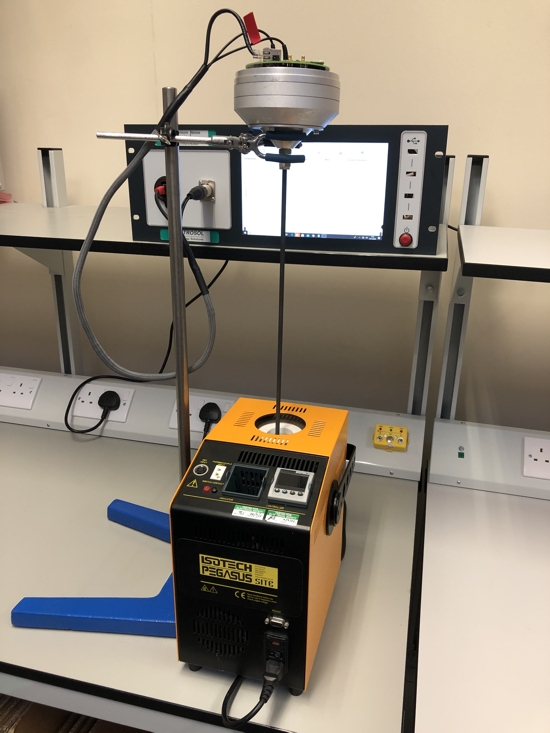The
World's first practical Johnson Noise Thermometer
developed by .......METROSOL
Limited
Johnson noise thermometry (JNT) is a primary
temperature measurement technique based on the fundamental
properties of thermal fluctuations in conductors.
A Johnson noise thermometer never needs calibrating
and is insensitive to the condition of the sensor material,
so is ideally suited to long-term temperature measurements
in harsh environments (such as nuclear reactor coolant circuits,
nuclear waste management and storage) or where low drift
is required (such as high temperature reference standards
in metrology or the annealing of single crystal turbine
blades in the aerospace industry).

JOHNSON NOISE THERMOMETERS
.... why use one?
At present all thermometers in use (thermocouples,
platinum resistance thermometers, thermocouples) are secondary
thermometers and are therefore prone to drift. They don’t
actually measure temperature directly, instead a property
of the sensor (such as resistance or EMF) is measured. The
property is related to temperature by a calibration process.
Either the generic relationship between the property and
temperature is used or an individual calibration can be
made if greater accuracy is required. In use, this relationship
is employed to convert the measurand back to temperature,
but this assumes that the relationship has not changed.
In practice, this relationship between the property and
temperature can change with time leading to “drift”
in the reported temperature. This is particularly so in
harsh environments where factors such as contamination of
the sensor, changes in its physical structure, strain or
transmutation (in nuclear environments) affect the property
measured independent of its temperature.
Primary thermometers are quite different.
With a primary thermometer, all the required properties
of the sensor are measured and then fed into a fundamental
physical law from which true thermodynamic temperature can
be calculated.
Because the measurement of temperature is
based on a fundamental physical law,
primary thermometers do not (cannot)
drift. Of course,
the electronics used to measure the required properties
can drift, but modern electronics are more than adequate
to ensure that such drift is insignificant. In current practical
thermometers, it is always the sensor rather that the electronics
that give rise to the drift.
What is JOHNSON NOISE?
Johnson noise (thermal noise, Johnson-Nyquist
noise, white noise) is the electronic noise generated by
the thermal agitation of the charge carriers (usually the
electrons) inside an electrical conductor, which happens
regardless of any applied voltage. The generic, statistical
physical derivation of this noise is called the fluctuation-dissipation
theorem.
Contact us | View site map
|